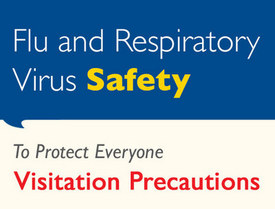05/01/2013 // Concord, CA, USA // LifeCare123 // Greg Vigna, M.D., J.D. // (press release)
John Hopkins has a well thought out, comprehensive protocol for dealing with MDR Acinetobacter (American Journal of Infection Control Volume 34 Issue 5, June 2006). It is summarized as follows:
1) The infection control department will be notified of any patient with a culture positive for a MDR Acinetobacter.
2) Infection control will notify the patient’s physician and the charge nurse.
3) Patients will be placed in a private room or placed with another patient with the same MDR-Acinetobacter. John Hopkins utilizes a new category called Maximum Isolation Precautions for these patients. Other patients who have been in contact either direct or indirect may be subject to active surveillance cultures. These surveillance cultures are not routinely obtained
.
4) Patients will have one-to-one nursing unless other patients can be placed together. If a nurse who takes care of a patient with a MDR Acinetobacter must go into a non-infected or non-colonized patient, that nurse must wear a clean gown and gloves into the patient’s room.
5) Physicians must wear gowns and gloves and should attempt to round on patients with a MDR Acinetobacter last.
6) Physical therapist should see only patients with MDR Acinetobacter or see patients with MDR Acinetobacter last with Contact Precautions.
7) Respiratory therapist provides services generally four times a day. Therefore, it is suggested that one designated respiratory therapist takes care of the patients with MDR Acinetobacter.
8) Radiology techs should attempt to do the studies on patients with a MDR Acinetobacter last and pay attention to isolation procedures, Standard Precautions, and disinfecting protocols.
9) All attempts will be made to cohort all patients with MDR Acinetobacter in one location.
10) Cleaning personnel are assigned to take care of rooms with MDR Acinetobacter and will not be designated to clean patients without a MDR Acinetobacter. All equipment used for cleaning the rooms must be cleaned between patients. Following discharge of a patient with MDR Acinetobacter the room is terminally cleaned. Basically that means changing curtains, disinfecting every surface in the room.
11) Any machine or equipment must be disinfected between use and any disposable equipment should be used if possible.
12) Patient transport should be limited as much as possible. Any test should be done at bedside if possible. Transport personnel should be gowned and gloved and all equipment will need to be disinfected after use.
13) Ambulation outside of the room should be limited unless essential to the patient’s recovery. In those circumstances staff should wear gown and gloves to assist the patient.
14) Visitors are required to follow the same protocols as the hospital staff. Literature should be provided to educate the approved visitors regarding the reason for the precautions and the policy.
“It is my opinion based on twenty years of clinical and administrative experience that the risk management department should be involved in education of the family and other visitors regarding isolation protocols,” says Greg Vigna MD JD, San Francisco Injury Lawyer and Founder of Life Care Solutions Group. Literature regarding the organism as well as policies and procedures should be discussed with the family. By involving risk management, the patient and patient’s family will be informed that the hospital has been and continues to be vigilant in trying to keep them safe. In addition, they will be told that the family’s cooperation is necessary to keep other patients safe. Full disclosure in the setting of education will decrease the risk of litigation for a potential bad outcome and prolonged hospitalization.
I believe John Hopkins’ protocols should be widely implemented by acute care hospitals, rehabilitation facilities, and nursing facilities understanding that patients with chronic disabling conditions such as spinal cord injury, traumatic brain injury, burn patients, and ventilator patients are most likely infected by this organism. This is due to their need for repeated hospitalizations that are required to manage their unique problems. Until the government adequately funds health care facilities’ wide implementation of John Hopkins protocol, it will be more like a dream than reality.
Media Information:
Address: 1401 Willow Pass Road, Concord, CA 94520
Phone: 888-990-9410
Url: Lifecare Solutions Group







